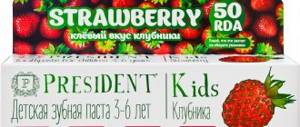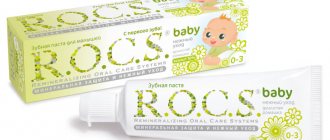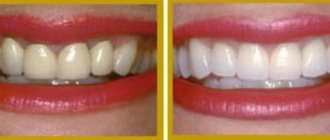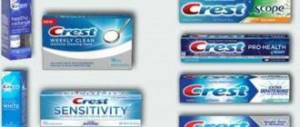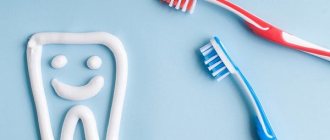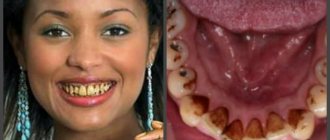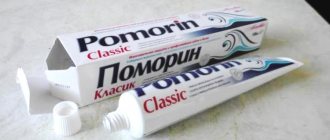The trend for organics and natural beauty products and tools is not slowing down, and even, on the contrary, is coming to those areas where, it would seem, there is only room for a professional approach. We're talking about dentistry. Several thousand years ago, there was a product that replaced people’s toothbrush, toothpaste, and even irrigator. It's about miswak. And now they are talking about him again. Outwardly, a miswak is a stick, the tip of which, after chewing, becomes like a brush; it is a kind of analogue of a brush for cleaning teeth. They are made from arak wood, better known as salvadora persica. They were traditionally used in the Middle East, but over time have become popular in Asia, and more recently in Europe, America and Canada.
Owner of the clinic Dr. SHIPKOV dental clinic Vladimir Shipkov explains if this trend has a future.
What are the benefits of miswak?
The tradition of using miswak as a hygiene product goes back to ancient times. There is evidence that nomadic tribes used them even in the pre-Islamic era. Later, the Prophet Muhammad recommended the use of miswak to all devout Muslims and to do so as often as possible. He motivated this not only by the cleansing and disinfecting properties of arak, but also by religious overtones.
The Salvadora Persian tree has anti-inflammatory, antibacterial, wound-healing, antifungal and partially analgesic effects. The plant contains a whole range of useful substances. Namely:
- vitamins: C, PP, E, others;
- trace elements: calcium, silicon oxide, sulfur, camphor, fluorides;
- glycosides: salvadoraside, salvadoside;
- flavonoids: quercetin, rutin;
- tannins;
- essential oils.
Getting into the oral cavity during the softening of the stick and during subsequent cleaning, these substances have a beneficial effect on tooth enamel, gums and oral microflora.
How to properly use miswak to brush your teeth
You bought a stick of miswak, what to do:
- Remove the new stick from the vacuum packaging.
- Rinse with water.
- You can peel off the bark with a knife or scissors, about 1.5–2 cm. But it is better to leave it as is to retain more useful substances.
- Chew the tip until a brush forms. If it’s hard to chew, you should soak it in water, but then some of the nutrients will go there. Chew until the brush becomes comfortable for subsequent cleaning. It is worth noting that the very process of chewing miswak already has a healing effect. You can swallow saliva soaked in the juice of the stick, this is useful for the gastrointestinal tract. But this should be done only in cases where there are no pronounced inflammatory processes in the oral cavity and there is no development of infection.
- Brush your teeth, massage your gums, clean your tongue from plaque.
- Rinse the stick with water.
- Use at least 2 times a day, and preferably after each meal.
Some sources say that the brush can be used several times, only then cut and chew a new brush. This option is justified in terms of economy, that is, with this approach, the stick will last for a long time. But it is better to cut off the used brush with scissors after each cleaning, every day or at least every other day. In this case, the benefits of miswak will be maximum. This is especially important when miswak is used as a therapeutic and prophylactic agent to eliminate pathogenic microflora and to treat gums.
But if only mechanical cleaning of teeth is important, then one brush can be used as long as the villi are suitable for this. In this case, one stick can last for a month.
How to properly brush your teeth with a miswak stick:
- It is recommended to move the stick up and down (for the front teeth). Both the front and the inside need to be cleaned.
- The back teeth should be brushed especially thoroughly, including the chewing surfaces. That is, you need to clean your teeth from all sides.
- Don’t forget to clean your tongue, especially if there is a strong coating.
- If necessary, do an additional light massage of the gums. To do this, you need to pull the upper/lower lip with one hand and massage the gums with the other.
Brush your teeth for a few minutes. The more thoroughly the oral cavity is treated, the better the therapeutic effect.
Cautions:
- Do not put too much pressure on the enamel of teeth and gums, so as not to cause tissue damage;
- It is not recommended to hold the stick in your fist, as it is more difficult to control the force of pressure;
- You should not suck out the miswak so that the beneficial substances remain and act in the oral cavity;
- With thinned and sensitive enamel, it is recommended to brush your teeth very carefully.
Not only adults, but also children can use miswak for dental hygiene. Children should do this under adult supervision. It is necessary to ensure that children do not bite off or swallow the brush to eliminate the risk of lint getting into the windpipe.
The use of miswak is also permitted if there are restored teeth. But it should be taken into account that the enamel of artificial teeth will remain the same, while the remaining teeth will become whiter.
It is possible to use a dental stick during pregnancy, as well as during breastfeeding. The natural composition of miswak is beneficial for the body of a woman and child.
How it works?
For hygienic needs, the roots and branches of Salvadora Persian are used. The first ones are tougher, but contain more nutrients. The latter have a more delicate texture, so they are more suitable for people with sensitive enamel and gum disease. Both are cut into sticks 15-20 centimeters long, and then the tip (1-2 centimeters) is cleared of the bark. Then it is turned into a brush by simply chewing it. The fibrous structure of wood is ideal for mechanical teeth cleaning, and the set of useful substances in the fibers functions as both a toothpaste and a mouthwash.
In addition to sticks, tinctures and solutions are made from Salvadora Persian. Arak extracts are added to tooth powders, pastes and rinses. They are actively used in pharmacology, in particular to suppress the growth of pathogenic bacteria in candidiasis. The high concentration of tannins in wood eliminates inflammation and stops bleeding of mucous membranes, fluoride suppresses pathogenic microflora, calcium protects teeth from destruction, and silicon oxide has a mild whitening effect.
Toothpaste MESWAK, Dabur, 100 gr.
Miswak toothpaste is a convenient format of the famous Ayurvedic oral care product - the Miswak stick, which Indians have long used to clean their teeth. The paste has a delicate sweetish mint taste, after which the feeling of freshness and cleanliness of teeth lasts for a very long time. The product perfectly removes plaque, refreshes and cares for the oral cavity. It foams well, making the paste consumption very economical.
The cause of the unpleasant odor and the development of caries are bacteria located on the surface of the cheeks, tongue, and tooth enamel. Miswak toothpaste actively fights bacteria and inflammation in the oral cavity, strengthens gums, and eliminates their bleeding.
Even modern medicine recognizes miswak as an excellent means of preventing caries, as well as preventing and treating other diseases of the gums and teeth due to the fluid substances it contains. In addition, it perfectly eliminates spotting and mottling of tooth enamel, gently whitening tooth enamel due to the presence of natural bleaching components in its biochemical composition.
With each use of Dabur Miswak Toothpaste, you will feel the surface of your teeth becoming smooth and sparkling, and your teeth visibly whiter.
Active components
Miswak (Salvadora persica) - Slows down the accumulation of plaque, making it an excellent preventive measure for caries. Treats and reduces the risk of gum inflammation and prevents bleeding. The plant has antiseptic, antimycotic, antibacterial, analgesic activity, anticonvulsant and antiulcer effects. The bark and wood of the plant contain numerous biologically active substances, the action of which determines the beneficial properties of this plant. Several studies have proven the antimicrobial effect of the plant. The alcohol extract of miswak inhibits the growth of streptococci, Staphylococcus aureus, enterococci, lactobacilli, and actinomycetes. Fluorine contained in the wood of the plant can significantly suppress the growth of carious bacteria. Therefore, it has found wide application in folk medicine. Externally, fresh leaves are used for swelling and abscesses. The bark from the roots of the plant has an anti-blister effect. A decoction of the roots of the plant is used in the treatment of toothache. Wood powder helps heal wounds and treat ulcers.
Product Ingredients: Calcium carbonate, Sorbitol, Purified water, Silica, Sodium lauryl sulphate, Sodium silicate, Sodium carrageenan, Sodium carboxy methyl cellulose, Miswak (Salvadora persica), Saccharin (Sodium saccharin).
Can miswak completely replace brush and toothpaste?
Official medicine recognizes the beneficial properties that miswak has and confirms them. However, it should be understood that sticks cannot be regarded as a full-fledged alternative to home hygiene products. To replace toothbrushes and toothpastes with them, you should at least consult a dentist. The optimal length of the fibers and their stiffness should be selected by the doctor. He will also tell you how to brush your teeth properly. In addition, only a specialist will be able to see the presence of hidden problems in which the use of chopsticks can cause harm.
How to choose a quality miswak
The sticks may have a salty taste if the plant grew in brackish soils. Such a miswak may even have a white coating, but at the same time it is of quite high quality. A sweet taste indicates the addition of synthetic ingredients to increase shelf life. It is better to buy siwak without additional preservatives. The natural substances of the plant are quite enough to protect against spoilage. Provided that the miswak is of high quality and packaged fresh. It is also not recommended to purchase siwak with additional flavors, for example, mint, since in this case synthetic flavors are used.
Thin sticks (up to 1 cm in diameter) are more tender, easier to chew, and more juicy. They are best used for painful gums that are prone to bleeding. Thick ones have hard fibers, so this brush has the best whitening effect. But its coarse fibers penetrate harder into hard-to-reach places, making it more difficult to clean the side surfaces of the back teeth.
A good siwak has a strong, pleasant aroma. The stick should not be too thick or too long. The average length is 15–20 cm. This miswak is best suited for comfortable use.
How to store a miswak stick
Sometimes, along with the stick, you can immediately purchase a container for storing it. This is convenient, but a regular toothbrush case will do. In any case, you should keep the miswak in a closed container. Otherwise, most of the volatile essential oils will evaporate, and the stick itself will become moldy. Such a siwak can no longer be used.
It is best to store the stick with the brush cut off. In this case, bacteria will not accumulate at the end of the stick.
Fresh sticks are sold in vacuum packaging with an expiration date indicated. It is recommended to store the unopened stick at a temperature no higher than 15 degrees. After opening, the period of use should be no more than 3 months.
What is unique about the composition of Miswak toothpaste?
The formula of the product is rich in herbal composition. It includes a number of useful and medicinal components, each of which performs its own function. The key ingredient is miswak. It intensively protects the oral cavity from pathogenic bacteria.
- Babul and bakul have a whitening effect and relieve inflammation.
- Nepalese pepper and turmeric remove plaque and prevent the appearance of tartar.
- Infected oak and hazelnut strengthen gums and have a hemostatic effect.
- Vegetable oils refresh the oral cavity, giving fresh breath.
This product makes it easier to quit the bad habit of smoking.
